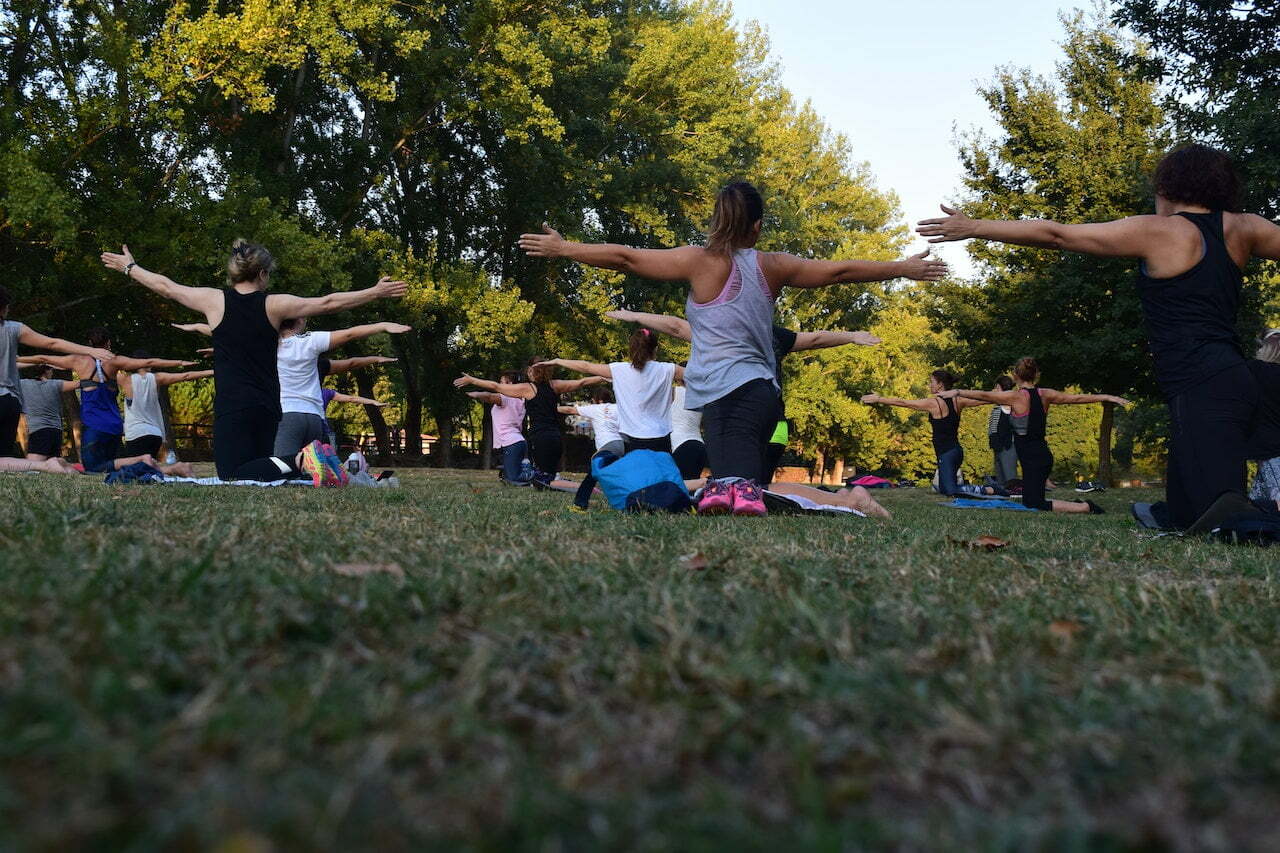Living a healthy lifestyle is a crucial aspect of leading a fulfilling life. With the increasing pace of life and the demands of modern society, it is easy to get lost in the hustle and bustle of daily activities and lose track of our well-being. This article will provide a comprehensive guide to developing a healthy lifestyle routine and highlight the importance of maintaining it.
| Content I. Introduction A. Definition of a Healthy Lifestyle B. Importance of a Healthy Lifestyle Routine II. Nutrition A. Balanced Diet B. Importance of Hydration C. Meal Planning III. Exercise A. Importance of Exercise B. Types of Exercise IV. Sleep A. Importance of Sleep B. Tips for Good Sleep Habits V. Stress Management A. Causes of Stress B. Importance of Stress Management C. Techniques for Stress Reduction VI. Personal Habits A. Avoiding Bad Habits B. Incorporating Good Habits VII. Conclusion A. Recap of Healthy Lifestyle Routine B. Importance of Consistency VIII. FAQs |

I. Introduction
A. Definition of a Healthy Lifestyle
A healthy lifestyle refers to a way of living that promotes physical, mental, and emotional well-being. It encompasses various aspects of life, including diet, exercise, sleep, stress management, and personal habits.
B. Importance of a Healthy Lifestyle Routine
After al maintaining a healthy lifestyle routine is crucial for overall well-being. It also helps to prevent chronic diseases, enhances mental clarity and focus, improves physical fitness, and promotes a better quality of life.
II. Nutrition and healthy lifestyle
A. Balanced Diet
Additionally balanced diet is essential for maintaining good health. It involves consuming a variety of foods that provide essential nutrients, including proteins, carbohydrates, fats, vitamins, and also minerals. Because a balanced diet promotes healthy weight management, improves digestion, and supports the immune system.
B. Importance of Hydration
Chiefly staying hydrated is vital for good health. Because water is essential for various bodily functions, including regulating body temperature, removing waste products, and transporting nutrients. Drinking enough water helps to prevent dehydration, which can cause fatigue, headaches, and other health problems.
C. Meal Planning
Meal planning is also an effective way to maintain a healthy diet. It involves preparing meals in advance, ensuring that they are nutritious and balanced. Because meal planning helps to avoid impulsive eating, save time and money, and promotes healthy eating habits.
III. Exercise role in healthy lifestyle
A. Importance of Exercise
Exercise is also essential for good health. It helps to improve cardiovascular health, strengthen muscles and bones, reduce the risk of chronic diseases, and enhance mental well-being. Regular exercise also promotes healthy weight management and improves overall physical fitness.
B. Types of Exercise
There are various types of exercises, including aerobic exercise, strength training, and flexibility exercises. Aerobic exercise involves activities that increase the heart rate, such as running, cycling, or swimming. Strength training involves lifting weights or using resistance bands to build muscle mass. Flexibility exercises involve stretching to improve joint mobility and prevent injury.
IV. Sleep impact on healthy lifestyle
A. Importance of Sleep
Chifly, sleep is essential for physical and mental well-being. It allows the body to repair and regenerate, strengthens the immune system, and promotes cognitive function. Adequate sleep is also crucial for mood regulation and emotional well-being.
B. Tips for Good Sleep Habits
Good sleep habits are essential for getting quality sleep. They include maintaining a regular sleep schedule, avoiding stimulating activities before bedtime, creating a comfortable sleep environment, and limiting caffeine and alcohol intake.
V. Stress Management for healthy lifestyle
A. Causes of Stress
Stress is a natural and inevitable part of life that can be caused by a range of factors, including environmental, biological, and psychological factors. Common environmental stressors include noise, pollution, traffic, and work-related demands. Biological factors, such as illness or injury, can also contribute to stress, as can psychological factors like anxiety, depression, and chronic worry. In addition, major life changes, such as divorce, job loss, or the death of a loved one, can be significant sources of stress. Financial problems, relationship issues, and social isolation can also contribute to stress. It’s important to recognize the sources of stress in one’s life and take steps to manage them effectively in order to maintain optimal health and wellbeing.
B. Importance of Stress Management
Stress management is crucial for overall well-being. It helps to prevent and reduce the negative effects of stress on the body and mind. Effective stress management techniques promote relaxation, improve mood, and enhance mental and emotional resilience.
C. Techniques for Stress Reduction
There are various techniques for reducing stress, including deep breathing, meditation, yoga, and mindfulness practices. Engaging in enjoyable activities, such as hobbies or spending time with loved ones, can also help to reduce stress.
VI. Personal Habits for healthy lifestyle
A. Avoiding Bad Habits
Avoiding bad habits, such as smoking, excessive alcohol consumption, and unhealthy eating habits, is crucial for maintaining good health. These habits can lead to various health problems, including heart disease, cancer, and obesity.
B. Incorporating Good Habits
Incorporating good habits, such as regular physical activity, healthy eating, and stress management, is essential for maintaining a healthy lifestyle routine. Good habits promote physical, mental, and emotional well-being and contribute to overall health and longevity.
VII. Conclusion
A. Recap of Healthy Lifestyle Routine
A healthy lifestyle routine involves various aspects, including nutrition, exercise, sleep, stress management, and personal habits. Maintaining a healthy lifestyle routine promotes overall well-being, reduces the risk of chronic diseases, and enhances the quality of life.
B. Importance of Consistency
Consistency is essential for maintaining a healthy lifestyle routine. Incorporating healthy habits into daily life and maintaining them over time is crucial for achieving optimal health and well-being
FAQs: related to healthy lifestyle
How much exercise should I do per week to maintain good health?
According to the World Health Organization, adults aged 18-64 should aim for at least 150 minutes of moderate-intensity aerobic physical activity or at least 75 minutes of vigorous-intensity aerobic physical activity per week. This can be achieved through activities such as brisk walking, cycling, or swimming. It is also recommended to engage in muscle-strengthening activities at least two days per week.
What are some tips for improving sleep quality?
Some tips for improving sleep quality include establishing a consistent sleep schedule, avoiding caffeine and alcohol before bed, creating a relaxing sleep environment, and engaging in a relaxing activity before bed, such as reading or taking a warm bath. It is also important to limit screen time before bed and to avoid stimulating activities, such as exercise or work, close to bedtime.
How does stress affect health?
Stress can have negative effects on both physical and mental health. Chronic stress can lead to increased risk of heart disease, high blood pressure, and diabetes, as well as mental health problems such
Can healthy eating help prevent chronic diseases?
Yes, healthy eating habits can help to prevent chronic diseases, such as heart disease, diabetes, and cancer. Eating a balanced diet that includes plenty of fruits, vegetables, whole grains, lean proteins, and healthy fats can provide the body with the nutrients it needs to function optimally and reduce the risk of chronic diseases.
What are some ways to incorporate stress management into daily life?
Some ways to incorporate stress management into daily life include practicing relaxation techniques, such as meditation or deep breathing, engaging in physical activity, spending time outdoors, connecting with loved ones, and engaging in enjoyable activities, such as hobbies or creative pursuits. It’s important to find techniques that work best for each individual and to make stress management a regular part of daily life.
